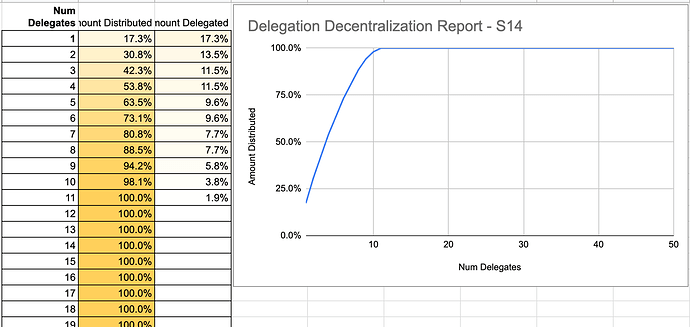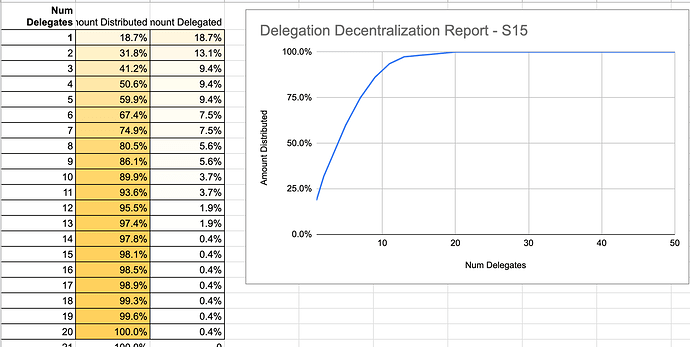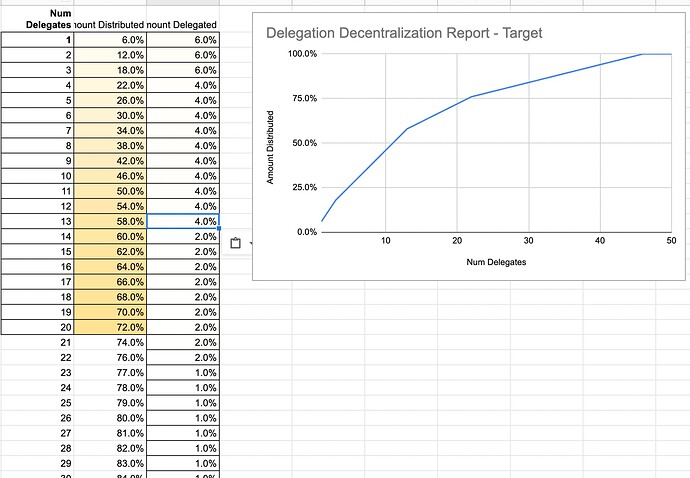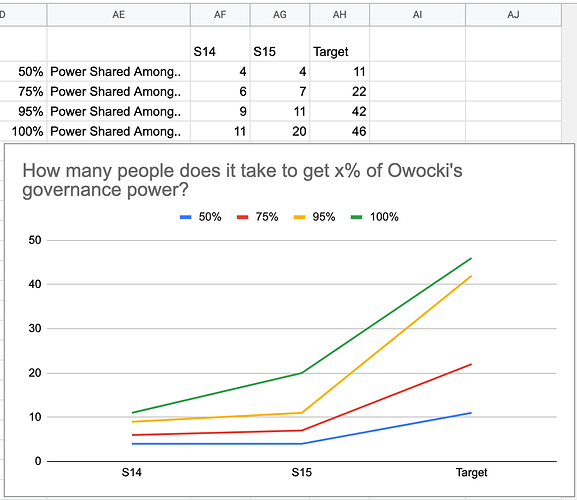Hi all,
I put together a little datasheet that shows how decentralized (or not) my delegations are.
S14
As you can see, in S14
…
- 50% of my voting power was concentrated in my top 4 delegates.
- 75% of my voting power was concentrated in my top 6 delegates.
- 95% of my voting power was concentrated in my top 9 delegates.
- 100% of my voting power was concentrated in my top 11 delegates.
Current
As you can see, currently…
- 50% of my voting power is concentrated in my top 4 delegates.
- 75% of my voting power is concentrated in my top 7 delegates.
- 95% of my voting power is concentrated in my top 11 delegates.
- 100% of my voting power is concentrated in my top 20 delegates.
Target
Here is a target delegation decentralization goal:
In this target,
- 50% of my voting power is concentrated in my top 11 delegates.
- 75% of my voting power is concentrated in my top 22 delegates.
- 95% of my voting power is concentrated in my top 42 delegates.
- 100% of my voting power is concentrated in my top 46 delegates.
Summary of the above data
Here is a visual summary of the above data…
Is it worth doing this? If so, how do?
I’ll end by re-asking this question,
I am not sure if [others have an essential intent to decentralized governance power or not, but if they do, this feels like a meaningful milestone to pursue as the product decentralizes into a platform.
I think there is something elegant and poetic about the decentralization of governance power happening in tandem with the decentralization of the product. I also think that decentralizing governance is wayyy less risky when there isnt a complicated product rollout coming up on the roadmap (read this post to see why). so I think I’d like tie the two milestones together and set a goal for myself to reach the target when Grants 2.0 launches.
I think that I can manage enough wallets operationally to make this happen I think. But I WILL need to know who delegates 20-50 are going to be to reach this target. So please continue recommending delegates to me!
To get to 50 delegates im going to need to know about up & coming talent in the DAO. so reminder -
pls come to my office hours or fill out this form if you have anyone you want to nominate to receive a delegation!



